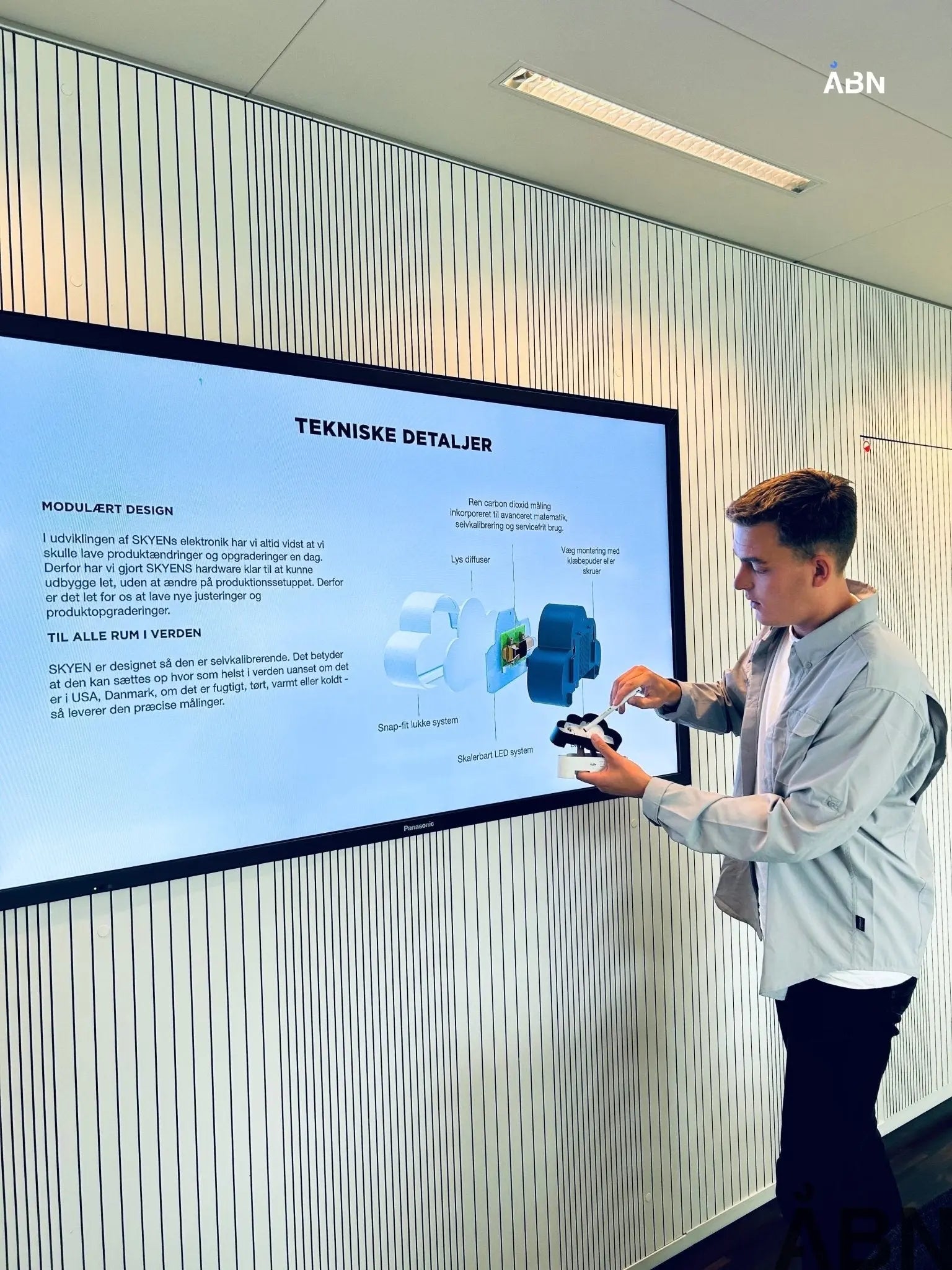New collaborations revolutionize the way we think about indoor climate in Danish primary schools and reduce inequality in health. ÅBN is supported in a development collaboration with the Danish Life Science Cluster for innovative and welfare technology development for the schools' indoor climate.
In 2016, it was published, in a study by Realdania and DTU, that 90% of the country's elementary schools have problems with their indoor climate. A problem which was again confirmed in 2021 by the Mass Experiment, even without an improvement. The problem is due to a lack of insight and opportunities to respond to the poor indoor climate.
ÅBN is a Danish startup from DTU, which has taken on this very challenge. With new ways of thinking and treating indoor climate, they have developed SKYEN, which is a technological, behavior-regulating tool that ensures a good indoor climate in schools.
The Danish Life Science Cluster drives innovation and welfare technology in order to accelerate Danish innovation and welfare technology, which must solve the inequality in health. In a new pool; The business beacon Life Science, Sund Vægt, Danish Life Science Cluster now grants financial support to ÅBN in a collaboration to accelerate and revolutionize the way indoor climate is thought about and used.
In this welfare technology development project where user involvement and value creation are essential, ÅBN, the municipalities and the schools are the basis for public-private cooperation.
"We are looking forward to rethinking the indoor climate once again through our specialty with our user involvement design process. With this initiative, we look forward to designing and building the world's first user-friendly indoor climate platform, instead of serving a lot of nonsense data. In this way, we contribute to creating more equality in health for those who cannot decide for themselves about their learning environment - the children."
Former CTO of ÅBN ApS, Valdemar Østergaard
The project is a pilot project and is expected to be completed in early 2023, and at the same time a launch of the new digital product range will be held.
Download the press kit here: https://aabn.io/pages/presse
Contact - OPEN
Kristoffer Jensen, CEO
+45 4013 0705 , kj@aabn.io
Contact - Danish Life Science Cluster
Bo Christensen, Special Adviser SSP
+45 2979 0660, boc@danishlifesciencecluster.dk
Fact box:
- An unhealthy indoor climate is responsible for children being sick for 30,000 school days each year (VELUX Healthy Homes Barometer).
- In 9 out of 10 primary school classes, teachers and pupils are exposed to an excessively high CO2 level (Realdania and DTU).
- An unhealthy indoor climate increases the risk of developing asthma by 40 per cent. (Fraunhofer).
- Children who are taught in a healthy indoor climate can be academically a whole grade level ahead.







